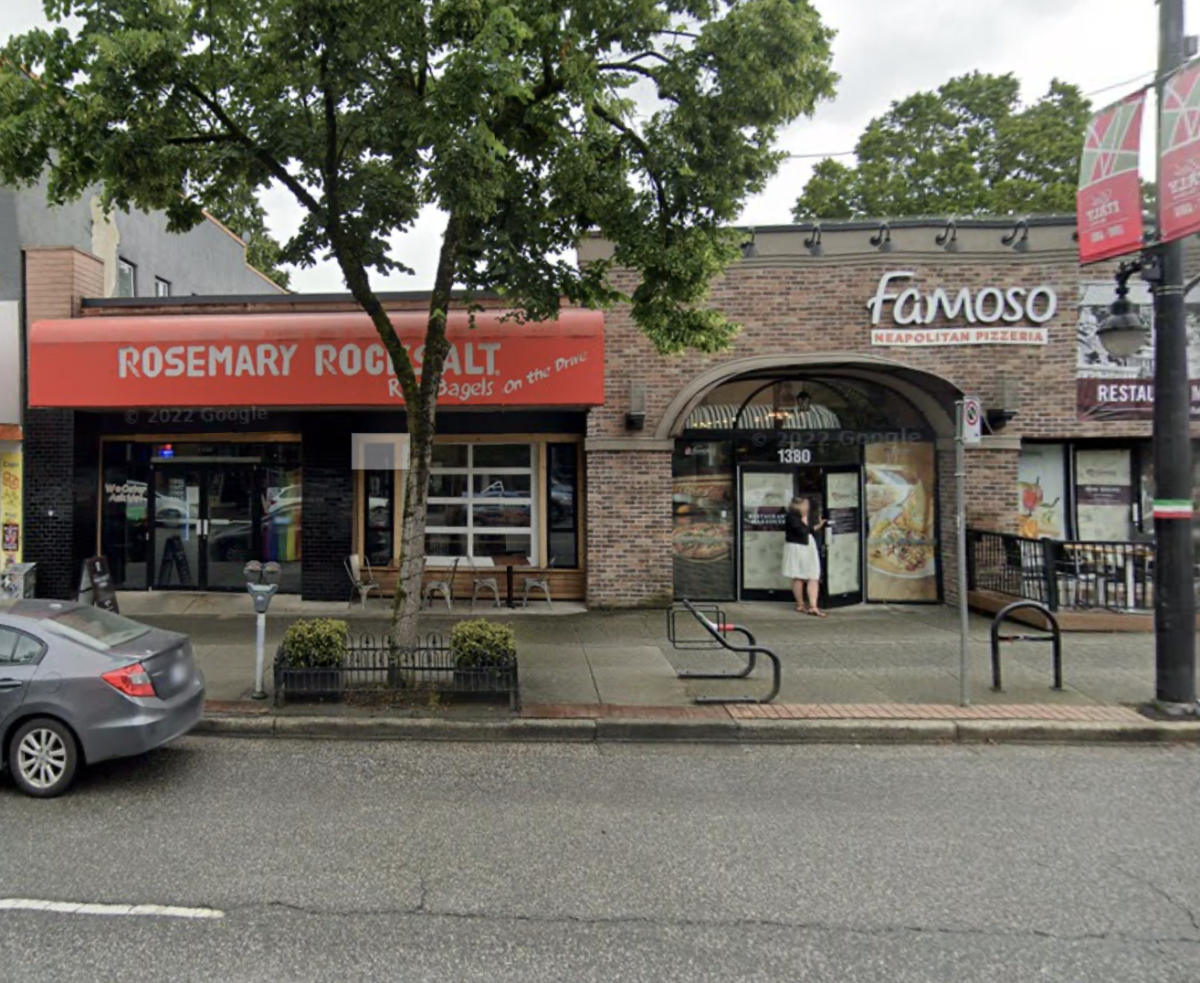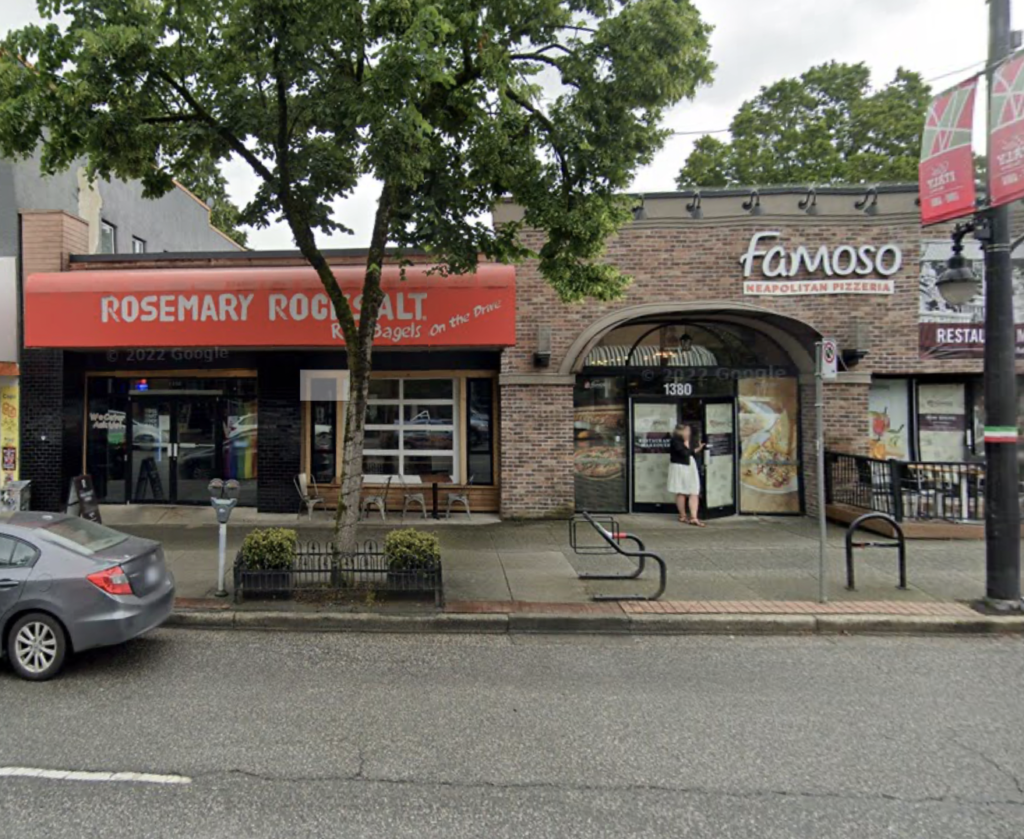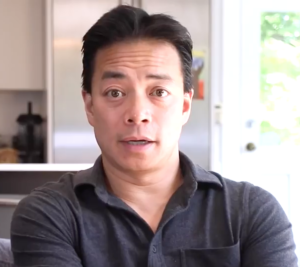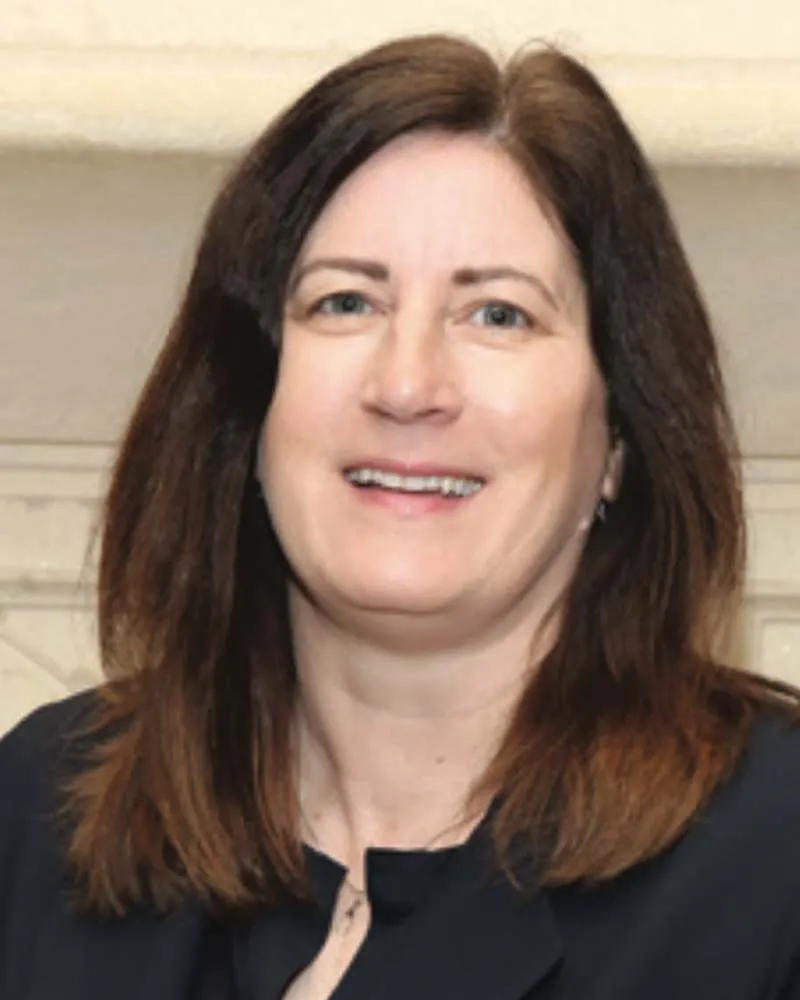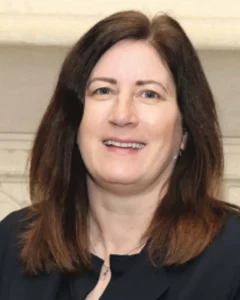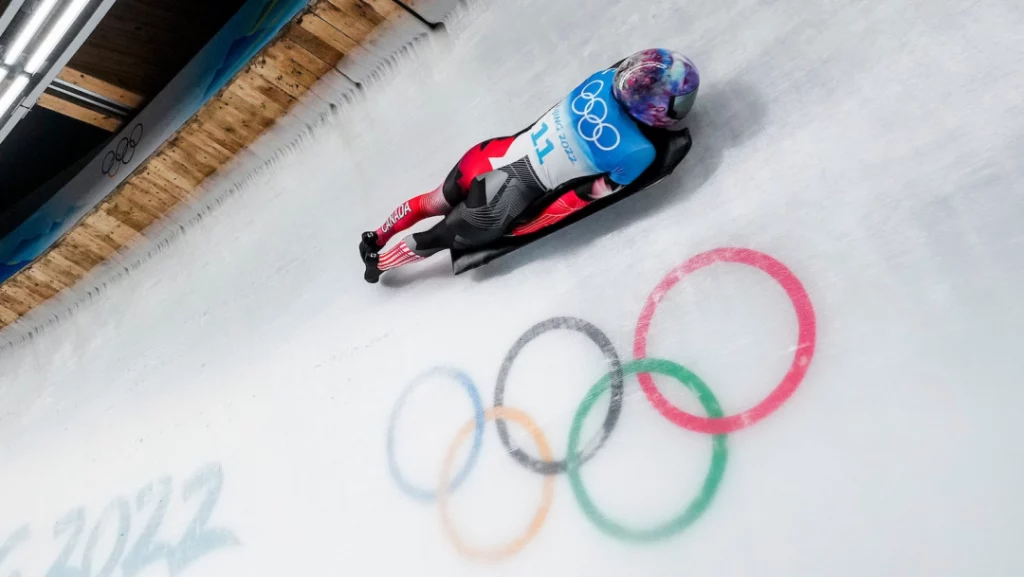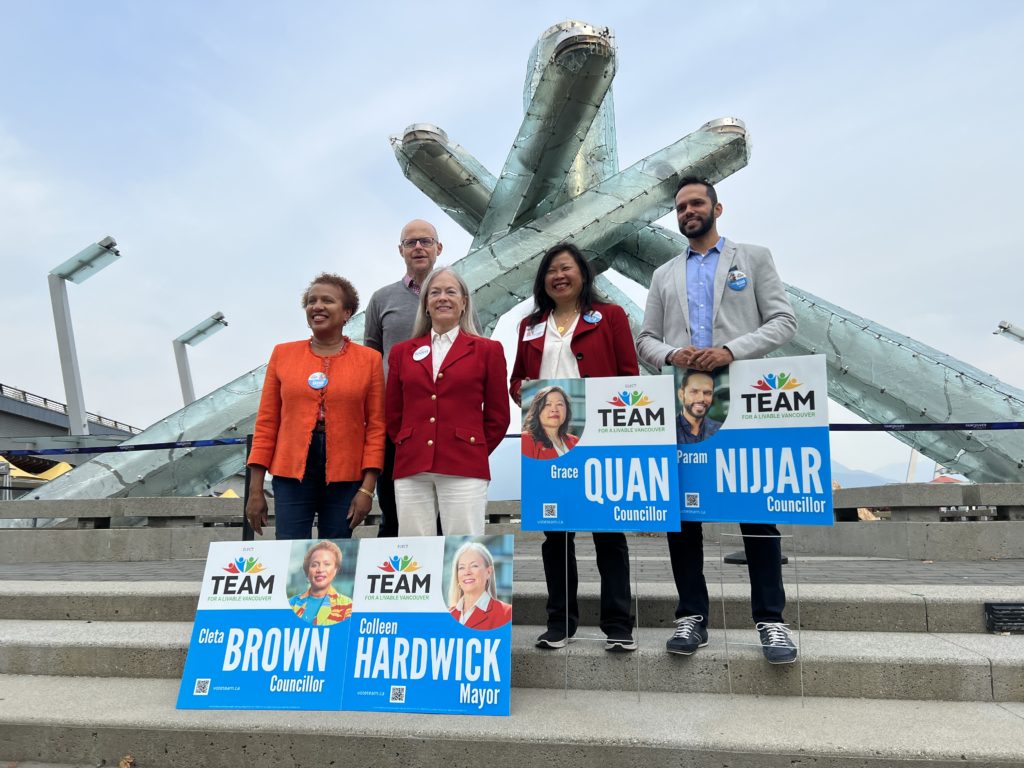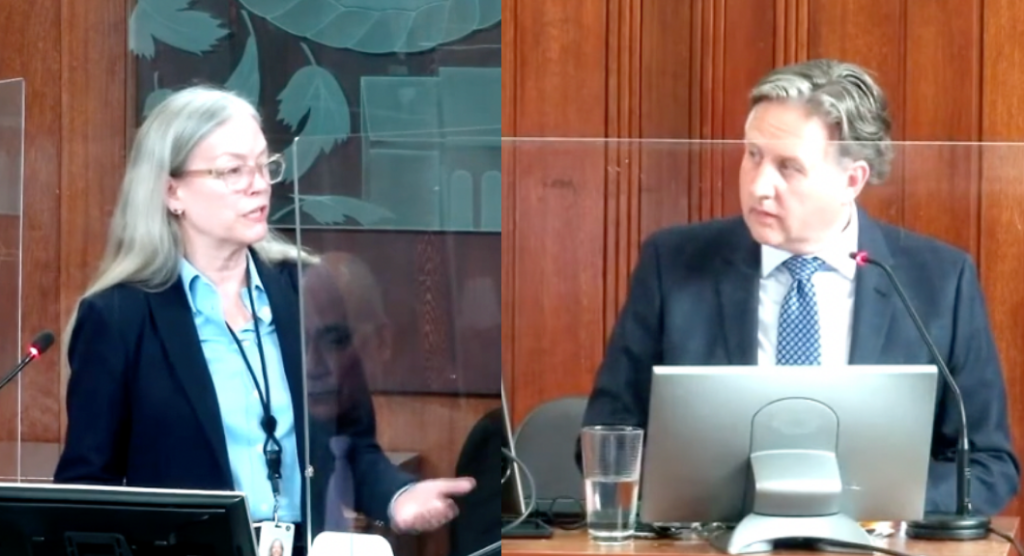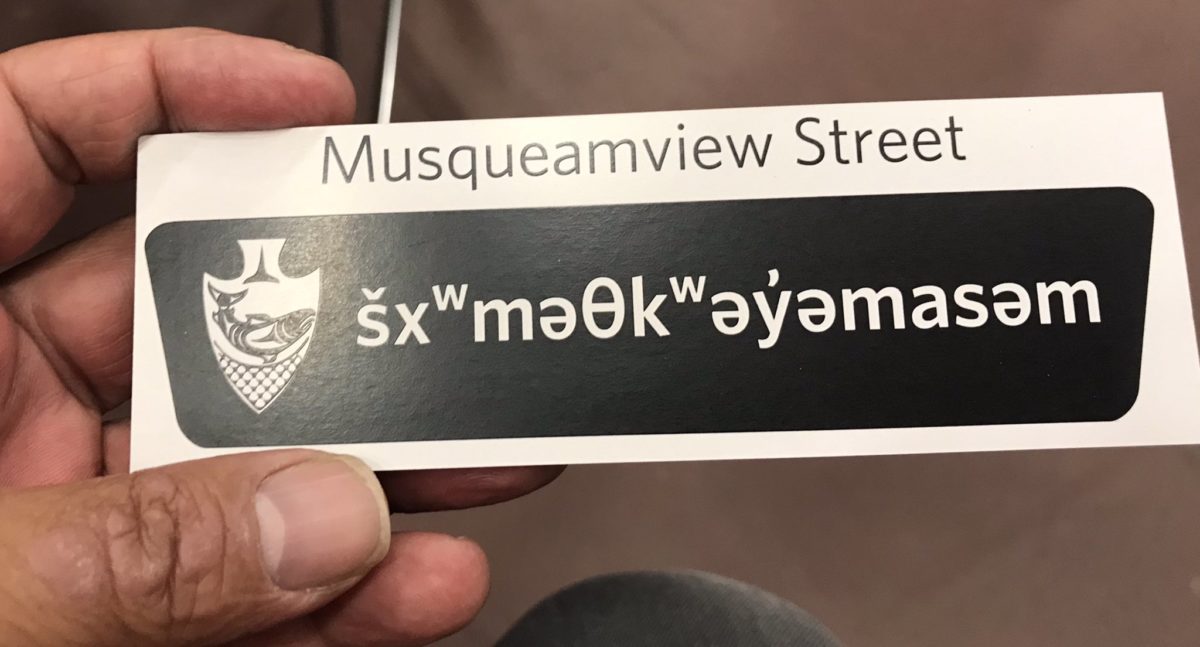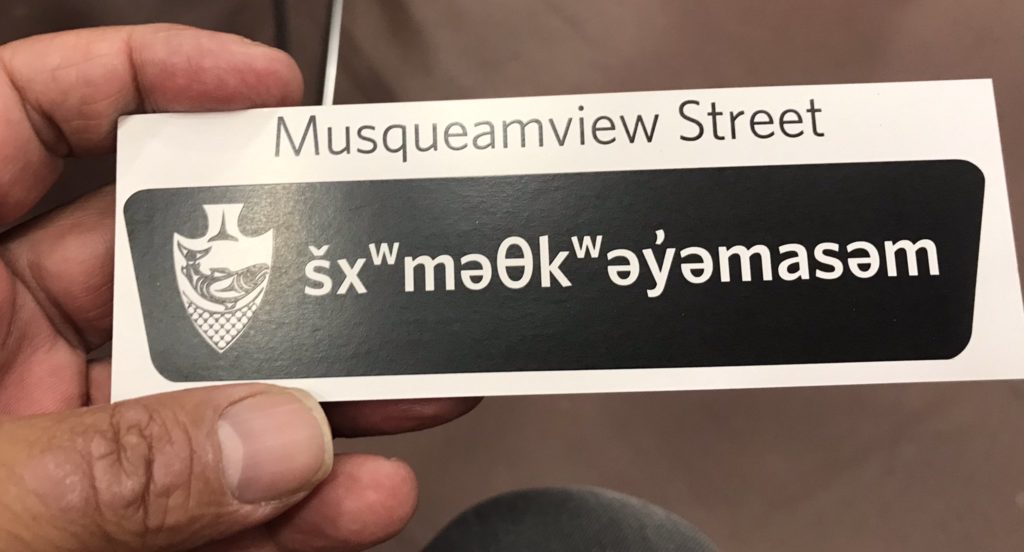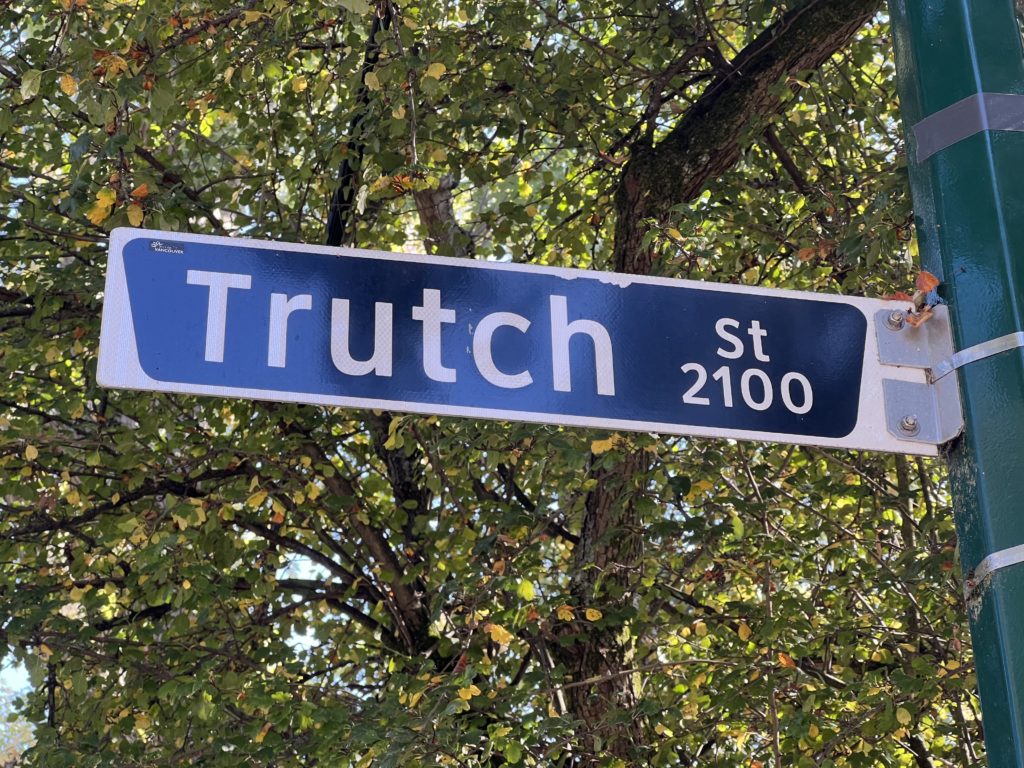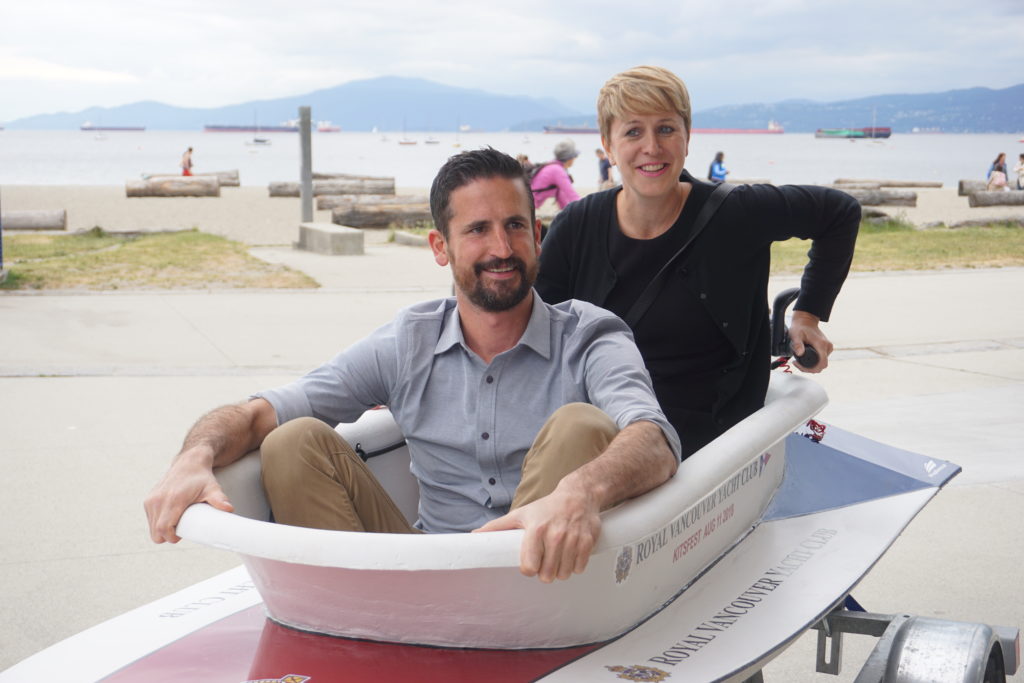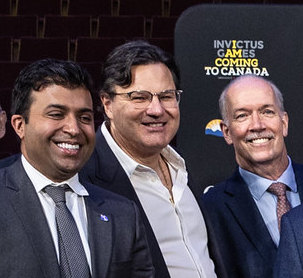Pacific Prosperity Network slapped with $1,000 in fines for failing to register as a third party
Bob Mackin
Elections BC has fined the Chip Wilson-founded dark money political action committee $1,000 for failing to register as a third-party election advertiser.
Elections BC said Oct. 6 that Pacific Prosperity Foundation, which does business as the Pacific Prosperity Network, violated the Election Act and Local Elections Campaign Financing Act and was fined $500 for each violation.

Pacific Prosperity Network’s Facebook post that sparked Elections BC fines. (PPN/Facebook)
An Oct. 4 enforcement notice to PPN executive director Micah Haince said the PPN-sponsored Facebook advertising that violated the two laws was the PPN introductory video that said the group intended to “take back British Columbia from the radical left.” The 1:26 video included images of Vancouver Mayor Kennedy Stewart, Victoria’s outgoing Mayor Lisa Helps, Premier John Horgan and ex-Attorney General David Eby with red Xs over their faces.
“PPN published this same advertisement through two paid posts between Aug. 17-19, when Elections BC reached out to request the ads cease,” said the violation notice. “The ads received between 16,000 and 22,000 impressions, and PPN spent a total of $342.42 on the advertisements over the three‐day period that they were active.”
The ads were published during the local elections pre-campaign period (July 18-Sept. 16) and Surrey South by-election period (Aug. 13-Sept. 10).
The Elections BC decision said PPN can request a review by an adjudicator, in-writing, within 14 days of receiving the enforcement notice. It can also contest the fine in B.C. Supreme Court.
Haince was not immediately available for comment.
Subsequent PPN posts on Facebook say “we stand with law-abiding firearm owners,” describe Justin Trudeau as “corrupt, dishonest, arrogant” and celebrate the Conservative leadership win of Pierre Poilievre.
Most-recently, PPN sponsored an Oct. 5 premiere of the “Vancouver is Dying” documentary about the Downtown Eastside by social media influencer Aaron Gunn, who is active in the B.C. Conservative Party.
In August, Haince said PPN was aiming to assist like-minded local government candidates and parties with technological help, but he declined to say which municipalities in which it was active. The Facebook Ad Library shows PPN has been involved in Port Moody. It bought four ads about development and taxation in mid-September.

Jeff Conatser of Pacific Prosperity Network and NPA (Twitter)
Between Jan. 5 and Oct. 2, PPN had spent $7,500 on Facebook ads.
In August, leaked internal NPA documents showed that PPN’s director of technology and digital, Jeff Conatser, worked on similar videos for an NPA-linked Facebook astroturf group called “Views of Vancouver.” The Facebook ad library showed that “Views of Vancouver” spent $20,952 on 36 ads since January 2021.
At the time, Haince said Conatser worked part-time with PPN and his involvement with the NPA was “completely outside of any role that he holds with PPN.”
The PPN website includes a page for donations, but a disclaimer states: “Due to the political nature of our work and campaigns, donations to PPN are not eligible for a tax receipt.”
Corporate and union donations were banned in 2017 by the NDP government, but a loophole allows political action committees.
Support theBreaker.news for as low as $2 a month on Patreon. Find out how. Click here.
Bob Mackin Elections BC has fined the Chip






